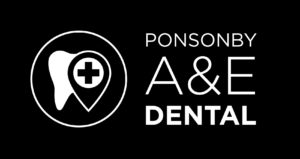
Bite Splint/Anti-Snoring Device
Depending on the severity, problems can include worn teeth, headaches and TMJ pain. Clicking jaw joints or (TMJ) is made worse if you clench or grind your jaw. Usually, the only time your joints get to relax is whilst you sleep, so help protect them with a splint. If you have clicking joints and jaw pain, you need to see a dentist. Teeth grinding while you sleep can put over four times the biting pressure on your teeth.
Most people sleep better wearing a custom mouthguard. It will provide you with a smooth biting surface and help relax your jaw at night. A bespoke mouth guard will protect your teeth from wear and reduce pain associated with grinding. An appliance can help relax your muscles and break the grinding habit. We offer a range of appliances to help with teeth grinding.
Do you or your loved one suffer from breathing difficulties during sleep such as snoring or obstructive sleep apnoea?
You will be pleased to know that your dentist has a snoring solution for you. The cause of snoring is the muscles around the neck, particularly the tongue relaxing at night. As the muscles relax, it is more difficult for the air to pass through the restricted space. When the room becomes too small then the muscles tend to reverberate as the air passes through, this causes the sound known as snoring.
Our dentists can make an Anti-snoring appliance/Snoring mouthguard which is custom-made to fit over your teeth to ensure a comfortable fit.
Need to Know
Appointments
Two appointments. You might need a referral to a sleep specialist.
Duration
45 minutes.
Benefits
- A bit-splint prevents unwanted movement or shifting of teeth. It protects the teeth and dental restorations from wear or breakage.
- Reduces jaw tension and pain.
- Anti-snoring device benefits keep the airways open during sleep.
Symptoms/Conditions
Anti-snoring device: Snoring.
After Appointment
- Wear the bite-splint or anti-snoring device as advised.
Related Doctors
Fees
- Bite Splint - $800
- Anti-Snoring Device - $1,500
Frequently Asked Questions
Bite splints can help reduce the forces of clenching to protect the teeth and jaws.
According to The Bruxism Association based in the UK, although other treatments such as biofeedback hypnosis, and even botox has been tried to help with teeth grinding, research has shown the most effective treatment to date to be night guards.


